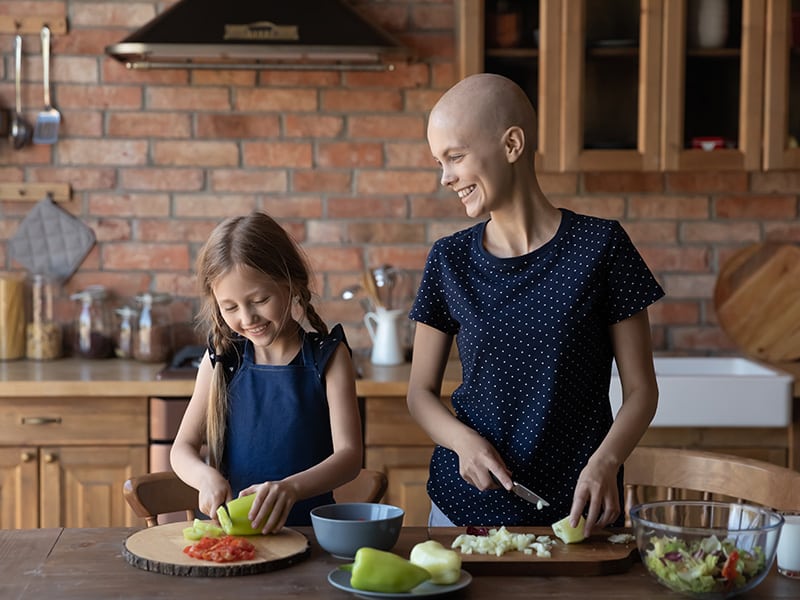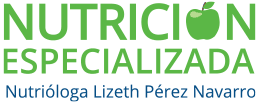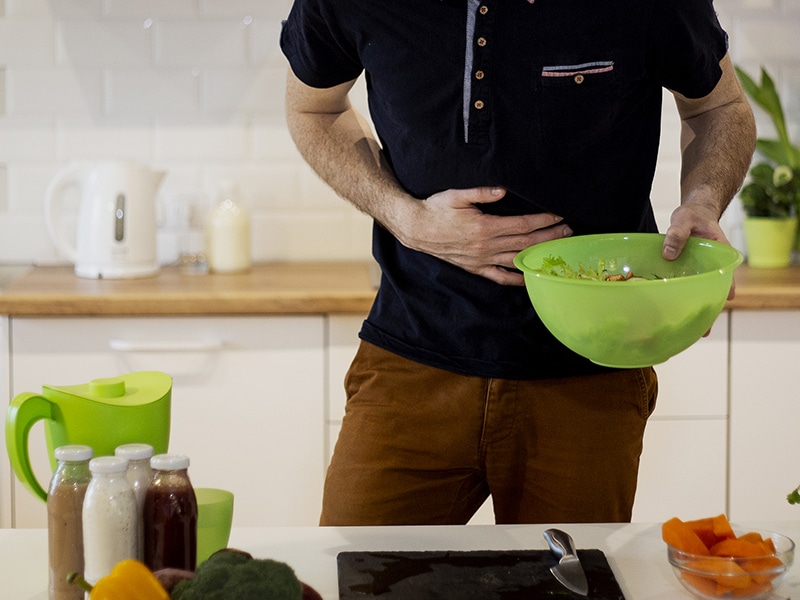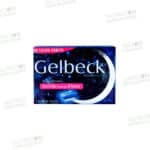Cancer and its treatments can cause many issues that affect how well you can eat and drink. Cancer and its treatments can cause many issues that affect how well you can eat and drink. Always inform your cancer healthcare team about any issues.
that you may have. Often, steps can be taken to address these problems and prevent them from worsening.
Changes in Appetite
Cancer and its treatment can lead to changes in your eating habits and appetite. Not eating enough can result in weight loss, which can, in turn, cause weakness and fatigue.
Eating as well as you can is an essential part of taking care of yourself. Treatment-related side effects that can also lead to a loss of appetite include pain, nausea, and constipation. Managing these issues can help you eat better.
What to do:
- Eat several snacks frequently throughout the day instead of having three large meals.
- To avoid feeling full quickly, avoid consuming liquids with meals or take small sips (unless necessary for swallowing or dry mouth). Consume most of your liquids between meals.
- Make eating more enjoyable by setting the table with your favorite dishes, playing your favorite music, or watching TV, or eat with others.
- Exercise as much as you can. Start slowly and gradually increase your activity level as you get stronger. Sometimes, a short walk about an hour before eating can help stimulate your appetite.
Constipation
Pain medications, changes in your eating habits, and reduced physical activity can cause your bowels to move less frequently, leading to difficulty in passing stools and constipation. If you experience constipation, try eating fiber-rich foods. Additionally, drinking more
liquids throughout the day, eating at regular times, and increasing physical activity, if possible, can be helpful.
What to do:
- Try to have a bowel movement at the same time every day.
- Drink more liquids, unless your cancer care team has advised otherwise. Often, pasteurized fruit juices or warm drinks in the morning can help.
- Use laxatives only as directed by your cancer care team. Contact your team if you haven’t had a bowel movement in three days or more.
- If you need more calories, protein, and fiber, consult your registered dietitian about a high-calorie,
- high-protein nutritional supplement drink that contains fiber.
- If you have gas problems, limit gas-producing drinks and foods (refer to the list below).
Diarrhea
The effects of cancer therapies and medications can lead to much more frequent bowel movements and diarrhea. Diarrhea is the passage of loose or liquid stools three or more times a day. Uncontrolled diarrhea can cause fluid loss (dehydration), weight loss, poor appetite, and weakness.
What to do:
- Consume plenty of light, clear, non-carbonated liquids throughout the day. Drink the liquids at room temperature. This may be easier to consume than beverages that are too hot or too cold.
- Eat small meals and snacks more frequently throughout the day.
- Avoid greasy, fried, spicy, or very sweet foods.
- Avoid milk and dairy products if they worsen diarrhea. Yogurt and buttermilk are usually allowed.
- Avoid gas-producing drinks and foods, such as carbonated beverages, gas-producing vegetables, and chewing gum.
- Consume foods and drinks high in sodium (salt), such as broths, soups, sports drinks, crackers, and pretzels.
- Consume foods and drinks high in potassium, such as fruit juices, nectars, sports drinks, potatoes with skin, and bananas.
- Call your cancer care team if diarrhea persists or worsens, or if your stools have an unusual color or odor.
Fatigue
Cancer treatment can cause intense and constant fatigue that doesn’t improve with rest. It’s a common issue for people with cancer and those receiving cancer treatment. Talk to your cancer care team if you experience constant fatigue or lack of energy.
Fatigue can have many causes, including cancer treatment, not eating enough, lack of sleep, depression, low blood counts, and certain medications. When the cause of fatigue is medical, your doctor may have ways to address it so you can feel better.
Dry Mouth or Thick Saliva
Radiation therapy to the head and neck region, certain types of chemotherapy, and specific medications can cause dry mouth or thick saliva. Saliva-producing glands can become irritated and produce less saliva, or your saliva can become very thick and sticky. Dryness can range from mild to severe.
Dry mouth can increase the risk of tooth decay and mouth infections. Dryness can worsen if you smoke or use tobacco, as well as when you consume alcoholic beverages.
If you experience any of these side effects, drink plenty of liquid throughout the day and try to eat a moist diet as much as possible. Additionally, brush your teeth and rinse with a solution of baking soda, salt, and water (detailed recipe below) regularly to help keep your mouth clean and prevent infections.
What to do:
- Drink enough fluids throughout the day (this helps to thin mucus).
- Eat your meals with small bites and chew your food well.
- Add broth, soup, sauces, yogurt, or cream to moisten your meals.
- Suck on sugar-free lemon drops, chew sugar-free gum or mints to stimulate saliva production. Citrus, cinnamon, and mint flavors often work well.
- Avoid commercial mouthwashes, alcoholic and acidic beverages, and tobacco.
- Limit caffeine consumption, including coffee, tea, energy drinks, and caffeinated sodas.
- Nutritional supplements, such as nutritional drinks used as meal replacements, may be helpful.
- If you can’t get enough calories and nutrition from solid foods, you may need to use liquid supplements for a period of time. Discuss this with your cancer care team.
Mouth Sores
Certain chemotherapy drugs or radiation therapy to the head and neck can cause mouth ulcers (sores) or a sore throat.
If you have these problems, a simple and soft diet, as well as consuming foods at room temperature or cold, can alleviate these symptoms. Moreover, thick, dry, or rough-textured foods may worsen your symptoms. You may also find that sour, salty, or acidic fruits and beverages, as well as alcoholic beverages and spicy foods, can cause irritation.
Rinse your mouth regularly with a solution of salt, baking soda, and water (mix 1 teaspoon of baking soda with 1
teaspoon of salt in a liter of water). This is useful for preventing infections and helps soothe your mouth. Gargle with the mixture to relieve throat irritation, but do not swallow it.
What to do for mouth sores:
- Consume soft and simple foods such as creamy soups, cooked cereal, macaroni and cheese, yogurt, and puddings.
- Puree or blend foods with a food processor or blender to make them easier to swallow.
- Eat cold or room-temperature foods instead of hot ones to reduce mouth irritation.
- Drink through a straw to avoid contact with mouth sores.
- Avoid rough, dry, or coarse-textured foods.
- Consume high-protein and calorie-rich foods to aid in recovery.
- Avoid alcohol, carbonated beverages, and tobacco.
- Your doctor may prescribe a mouthwash that you can swallow after refreshing and rinsing your mouth. Consult them about this.
Nausea
Some people may experience nausea with or without vomiting. If this occurs due to chemotherapy, nausea can happen on the day you receive your treatment and/or these symptoms may last for several days,
depending on the specific medications you take. If you’re receiving radiation therapy to the abdominal, brain, chest, or pelvic region, nausea can occur shortly after treatment and last for several hours, although
nausea and vomiting can be caused by other factors as well.
Make sure to inform your cancer care team if you have nausea or are vomiting, as there are medications that can be helpful.
What to do:
- Consume 6 to 8 small meals a day instead of 3 large ones.
- Eat dry foods like crackers, toast, dry cereal, or breadsticks when you wake up and at several-hour intervals throughout the day.
- Choose foods that do not emit strong odors.
- Eat cold foods instead of hot or spicy ones.
- Avoid extremely sweet, greasy, fried, or spicy foods.

Swallowing problems
Cancer and its treatments can sometimes cause swallowing problems. If you’re experiencing difficulty swallowing, try consuming soft and liquid foods. You may find it easier to swallow thick liquids than thin ones. High-calorie and high-protein beverages can help you maintain your food intake when you can’t eat regular foods.
Your doctor may refer you to a speech therapist, a specialist who can teach you how to swallow food with less difficulty and reduce coughing and choking while consuming beverages and food.
What to do:
- Follow the special feeding techniques recommended by the speech therapist.
- Contact your cancer care team immediately if you choke or cough while eating, especially if you develop a fever.
- Consume small, frequent meals.
- Use canned liquid nutritional supplements if you cannot eat enough food to meet your needs.
Try thickening agents, such as:
- Gelatin: can be used to soften cakes, cookies, sandwiches, fruit purees, and other cold foods. Mix 1 tablespoon of unflavored gelatin into 2 cups of hot liquid until dissolved and pour over the food. Allow the food to set.
- Tapioca, flour, cornstarch: use to thicken liquids. Note that they require cooking before use.
- Commercial thickeners: follow the instructions on the packaging to adjust the thickness of a liquid.
- Gelatin: can be used to soften cakes, cookies, sandwiches, fruit purees, and other cold foods. Mix 1 tablespoon of unflavored gelatin into 2 cups of hot liquid until dissolved and pour over the food. Allow the food to set.
- Tapioca, flour, cornstarch: use to thicken liquids. Note that they require cooking before use.
- Commercial thickeners: follow the instructions on the packaging to adjust the thickness of a liquid.
- Mashed vegetables and instant potatoes: use in soups. Note that this will change the taste of the food.
- Rice cereal for babies: use to achieve a very thick consistency.
If thin liquids are more suitable for you, consider drinking coffee, tea, refreshing beverages, nutritional drinks, sorbets, broths, and light creamy soups.
If thick liquids are more suitable for you, consider buttermilk, egg nog (non-alcoholic), malted milk, yogurt smoothies, and ice cream.
Changes in Taste and Smell
Cancer and its treatments can alter your sense of taste and smell. These changes can affect your appetite and are often described as causing a bitter or metallic taste. If you’re experiencing these problems, try different foods, seasonings, spices, beverages, and cooking methods from what you’re used to. Also, keep your mouth clean through rinsing and brushing your teeth, as this may help things taste better.
What to do:
- Use plastic utensils, as well as glassware and dishes.
- Consume sugar-free lemon candies, sugar-free gum, or mints.
- Opt for fresh or frozen fruits over canned ones.
- Season your meals with acidic flavors such as lemon wedges, lemonade, citrus fruits, vinegar, and pickled foods (if you don’t have mouth or throat pain, follow this advice).
- Freshen your mouth with a baking soda, salt, and water mouth rinse before eating, which can help improve the taste of food (mix one teaspoon of salt with one teaspoon of baking soda in a liter of water. Shake well before rinsing your mouth and then spit it out).
- If red meats taste strange to you, try other high-protein foods like chicken, fish, eggs, or cheese.
- Blend fresh fruits into milkshakes, ice cream, or yogurt.
- To reduce odors, cover drinks and use a straw; select foods that don’t require cooking; avoid eating in stuffy or hot environments.
Weight gain
Some people do not experience weight loss during treatment and may even gain weight. This is particularly true for individuals with breast, prostate, or ovarian cancer who are taking medications or receiving hormonal therapy or chemotherapy.
If you notice any weight gain, inform your cancer care team to determine what might be causing this change.
If you want to avoid weight gain, here are some practical tips that might be helpful:
What to do:
- Request that your cancer care team recommend a registered dietitian to assist with your nutritional needs without gaining weight.
- Try to walk daily if you can and with your doctor’s approval Speak to your cancer care team about being referred to a physical therapist to help you safely increase your activity levels.
- Limit portion sizes, especially with high-calorie foods.
- Choose fish, poultry, or beans and peas over red meat. When eating red meat, select lean cuts and eat smaller portions.
- Opt for whole-grain or whole-grain bread, pasta, and cereal (made from barley and oats) over refined grains; also, choose brown rice over white rice.
- Limit your consumption of refined carbohydrates, including pastries, candies, sugary cereals, and other high-sugar foods.





